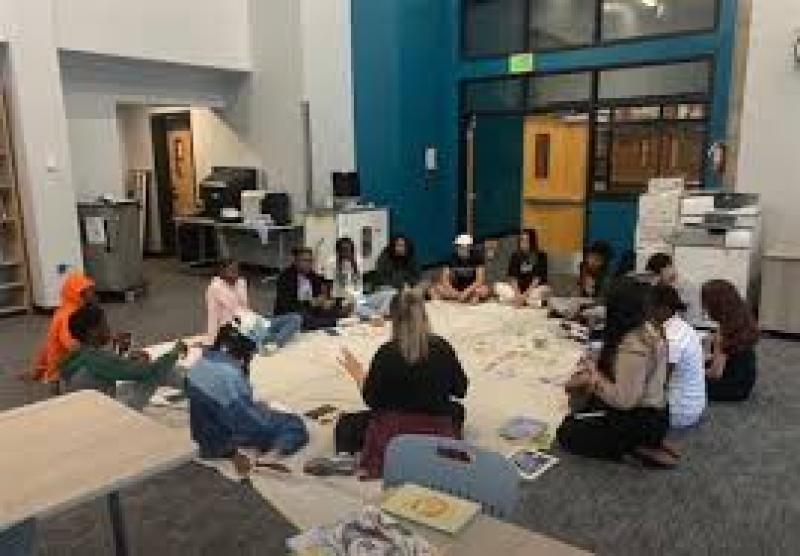Achieving Excellence Academy: A partnership between the Denver Public Schools and the University of Denver
By Maria Salazar

The Denver Public Schools (DPS) Achieving Excellence Academy (AEA) engages DPS Students of Color (SOC), and their Teachers of Color (TOC), in an ethnic studies curriculum that is humanizing and culturally responsive, with the goal to increase student and teacher outcomes related to academic and ethnic/racial identity, emotional intelligence, and critical consciousness.
The AEA launched in 2022 and is in its third year in 2024 serving Black, Latinx, Asian American Pacific Islander (AAPI), and Indigenous SOC. In 2024, the AEA added the Peer Power Program (P3). The P3 supports incoming freshmen as they transition to high school through mentoring from AEA teachers and University of Denver students. To date, the AEA has served 220 SOC and 34 TOC. Researchers from University X conducted a mixed methods study across three years of the program. Overall findings indicate positive AEA student and teacher outcomes that demonstrate the promise of a critical unschooling, humanizing education. This research brief details three-year research findings and actionable feedback for improvement. AEA students also consistently described stark differences between the AEA and their traditional high school experience, including three key differences: ethnic studies history curriculum, student voice, and caring teachers. Moreover, AEA students described how the AEA positively impacted their transition into high school and increased their college knowledge.
AEA students identified strengths as: (a) enacting applied, engaging, and fun programming; (b) centering students’ cultures and history; (c) building relationships with diverse peers and adults; (d) integrating community-immersion experiences; (e) providing support for mental health and socio-emotional learning; (f) supporting transition to high school; and (g) increasing college knowledge. Areas to improve include increasing opportunities to learn about other cultures, access for SOC, and interactivity and student voice. Student-reported outcomes in focus group interviews included increased engagement, academic identity, ethnic-racial identity, emotional intelligence, and critical consciousness. AEA teachers described professional and personal growth and an increased sense of community. Survey research was challenging due to student response rates, however, one consistent finding across time was an increase to Black students’ emotional intelligence.